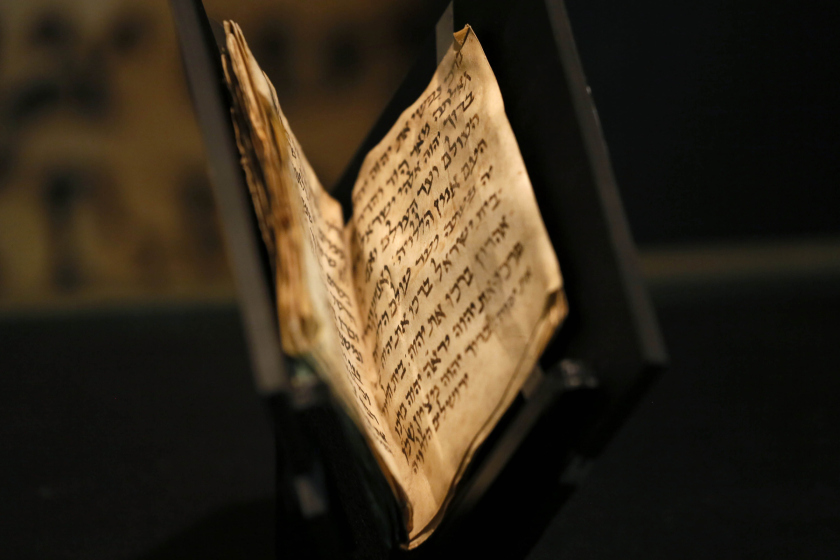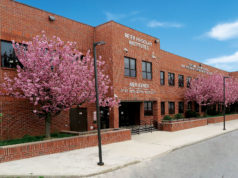 Rio has an ethnic mix that includes Brazils second-largest Jewish community (after Sao Paulo). An estimated 30,000 of Rios six million residents are Jewish, with roots as varied as you might imagine: there are descendants of the first Iberian refugees of the Portuguese and Spanish Inquisition, who arrived before the countrys independence, as well as Sephardic and Ashkenazi families from successive waves of immigration.
Rio has an ethnic mix that includes Brazils second-largest Jewish community (after Sao Paulo). An estimated 30,000 of Rios six million residents are Jewish, with roots as varied as you might imagine: there are descendants of the first Iberian refugees of the Portuguese and Spanish Inquisition, who arrived before the countrys independence, as well as Sephardic and Ashkenazi families from successive waves of immigration.
More than two-dozen synagogues and many more institutions cater to this diverse and active population. The largest is the Associacao Religiosa Israelita (ARI), a congregation and community center founded in the 1940s by German Jews.
For a more historic look at Brazilian Jewish life, head to the Museu Judaico do Rio de Janeiro (Jewish Museum), located in the citys stately, newly cleaned-up downtown centro. Here youll find a comprehensive permanent exhibition chronicling Rios Jewish presence over the past 500 years, along with a major collection of Jewish ritual artifacts.
The Jewish Museum of Rio de Janeiro, founded in 1977 with the donation of a menorah, is a dynamic cultural center with activities structured around preserving the memory of the vibrant Jewish culture. The museum maintains permanent exhibits on the history of the Jewish community in Rio and the traditions of Judaism in all its aspectsreligious, cultural and historical. It promotes academic research on immigration and annual competitions for students. It also has a center for research, which researches immigration and the Holocaust, a video library with over a thousand titles and a library.
The Jewish Museum has a study center, with conducts research on Jewish immigration and the development of the local community. It also boasts a video collection with more than 1,000 titles.
The Museum was created as a response to the need, of Rios Jewish community, to save and preserve its history and culture. Although the presence of Jewish individuals in the city has been recorded since the 1830s, the communitys presence emerged in the early 20th century. It has changed continuously with successive migratory waves, each leaving their mark through objects, documents, books, and photographs. These represent an ancestral culture and a source of inspiration and knowledge that following generations have endeavored to preserve.
Founded by three community couplesNaum and Ester Kosovsky, Jorge and Bella Jozef and Chaim and Rosa Szwertszarf the Museum has moved twice, and since 1986 has been located on Rua Mxico, near the National Library and the Municipal Theater, in Downtown Rio.
One of the museums main attractions is the Feldman Collection, composed of 69 menorahs and other objects made by artisan and collector Joseph Feldman, who was born in Russia in 1899 and lived in Rio from 1925 until his passing in 1978. The menorahs are replicas of old European pieces.
The Holocaust is also represented by a collection of photographs, documents, and objects related to this tragic time in history. There is also a special library on this subject.
The Jewish Museum preserves the memory of and pays tribute to Holocaust survivors, many of whom live in Rio. The Museums library contains over 300 titles on the subject and holds regular exhibitions and lectures about the Holocaust.
The library includes over 600 titles of fiction, memoirs, religion, folklore, medicine, philosophy, law, ethics and childrens literature. It is a diverse collection. The library is constantly enriched by new works.
The museum possesses more than a thousand movies that deal with issues related to the Jewish people, from recent historical documentaries about Israel to Hollywood musicals. The films are in various languages, including Spanish, English, German, French, Italian, Hebrew, Arabic, Turkish, Russian, Polish, Japanese and Ladinomostly with Portuguese subtitles. The Museum promotes regular sessions of films at their headquarters and lends movies and books to schools.
In addition to the Joseph Feldman collection, there is an exhibition dedicated to Egon and Frieda Wolff containing 44 books published between 1975 and 1996, two autobiographical writings of Frieda Wolff, and photographs.
Egon and Frieda Wolff landed at the port of Santos on February 12, 1936, newly married and escaping the Nazis. Both graduates of the University of Berlin, settled in St. Paul, where he worked. Later, they moved to Rio, where he participated in community activities, with Egon and was president of the Jewish Hospital. In 1960, curiosity about Jewish immigration to Brazil and lack of satisfactory answers, (the words of Frieda) led the couple to leave their other activities and immerse themselves in research. Tireless travelers, they toured cemeteries throughout the country, taking names, dates and genealogies and they did hundreds of interviews.
The quality of the work of Wolff led the Brazilian Historical and Geographical Institute to invite them to join the organization, although both modestly considered themselves amateurs. The couples 44 books are based on their research. For more than 10 years, they traveled throughout Brazilian in search of documents and data on the presence of Jews in Brazil since the colonial period. Their research is cited in many books.
The museum also possesses archaeological pieces that belonged to Israeli General Moshe Dayan, all considered of great value; and the photos, documents and medals of chemist Fritz Feigl, who was born in Vienna. He arrived in Brazil in December 1940 and began investigating ways to enjoy coffee. He developed a method to extract caffeine from coffee. His wife, Regine Feigl set up a factory in Sao Paulo. The couple were responsible for major real estate projects, including the Central Avenue building in Rio.
He was the founder and first president of the Federation of Israeli Societies of Rio de Janeiro, which is now the Jewish Federation of Rio de Janeiro. He donated the building that housed its first headquarters, which is now where the museum is located.
If you are planning a trip to Brazil, visit the Museu Judaico do Rio de Janeiro and enjoy.



